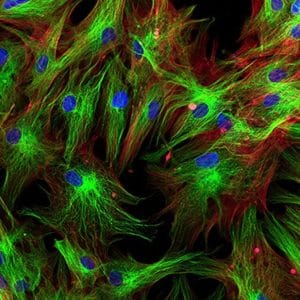Introduction to Epigenetic Testing
The concept of epigenetic testing has revolutionized the field of personalized medicine, enabling individuals to take control of their health like never before. As TruDiagnostic Founder Ryan Smith notes, this innovative approach focuses on predicting disease risk and promoting lifestyle changes to rewrite one’s health future. With the global longevity market expected to reach .6 billion by 2026, growing at a CAGR of 36.4%, it is essential to delve into the world of epigenetic testing and its implications.
Understanding Epigenetics
At its core, epigenetics involves the study of gene expression and how environmental factors, such as diet and lifestyle, can influence an individual’s genetic predispositions. Epigenetic testing analyzes these factors to predict disease risk and provide personalized recommendations for mitigating that risk. By understanding how lifestyle choices impact our epigenetic profile, we can make informed decisions to promote healthy aging and reduce the likelihood of developing chronic diseases.
The Science Behind Epigenetic Testing
The process of epigenetic testing involves analyzing an individual’s DNA methylation patterns, which can reveal valuable information about their genetic predispositions and environmental influences. This information is then used to predict disease risk and provide personalized recommendations for lifestyle changes. For instance, studies have shown that individuals who engage in regular exercise can reduce their risk of developing type 2 diabetes by up to 30%. Similarly, a diet rich in fruits and vegetables can lower the risk of heart disease by up to 25%.
Key Findings
Some of the key findings in the field of epigenetic testing include:
- Personalized nutrition: Epigenetic testing can help individuals identify the most effective diet for their unique genetic profile, leading to improved health outcomes.
- Disease risk prediction: By analyzing epigenetic markers, individuals can predict their risk of developing certain diseases, such as cancer or Alzheimer's.
- Lifestyle interventions: Epigenetic testing can inform lifestyle changes, such as exercise and stress reduction, to promote healthy aging and reduce disease risk.
Looking to the Future
As the field of epigenetic testing continues to evolve, we can expect to see significant advancements in personalized medicine. With the help of TruDiagnostic and other pioneering companies, individuals will have greater control over their health and wellbeing. As I reflect on the implications of this research, it becomes clear that epigenetic testing has the potential to revolutionize the way we approach healthcare, enabling us to take a more proactive and preventative approach to our health.
Embracing a Healthier Future
In the words of Ryan Smith, “epigenetic testing puts control back into our hands.” By embracing this innovative approach, we can rewrite our health future and promote a culture of healthy aging. As we look to the future, it is essential to prioritize lifestyle choices that support our epigenetic health, from exercise and nutrition to stress reduction and sleep. By doing so, we can unlock the full potential of epigenetic testing and create a brighter, healthier future for ourselves and generations to come.














